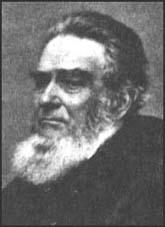Edward Bates

Edward Bates was born in Goochland County, Virginia, on 4th September, 1793. As a young man he moved to Missouri where he studied law. Bates became a lawyer in St. Louis and in 1826 was elected to the House of Representatives.
A member of the Whig Party, Bates joined the newly created Republican Party in 1856. Bates, who freed his own slaves, became involved in the campaign against slavery. He also opposed the Kansas-Nebraska bill.
In 1860 Bates was one of those nominated to become the presidential candidate of the Republican Party. However, at the National Convention, when it was clear that Bates could not win, he gave his full support to Abraham Lincoln. He was rewarded by being appointed as Attorney General.
Bates was a successful attorney general and was seen as a moderate in Lincoln's cabinet. He opposed military conflict with the Confederacy claiming that a civil war "would soon become a social war, the horrors of which need not be dwelt upon." During the American Civil War Bates opposed the recruitment of black regiments and complained about the growing influence of the Radical Republications in the government.
Lincoln and Bates disagreed about how the Confederacy should be treated after the war. Whereas Lincoln favoured Reconstruction, Bates believed in granting a universal amnesty and the restoration of property rights. Unable to convince Lincoln of this policy, he resigned from office in November, 1864.
Bates hoped to be appointed at Chief Justice of the Supreme Court but instead this post went to Salmon P. Chase. After Lincoln's assassination, the former attorney general attacked the decision of Edwin M. Stanton and James Speed to try the alleged conspirators by a military commission.
Edward Bates died in St. Louis on 25th March, 1869.

